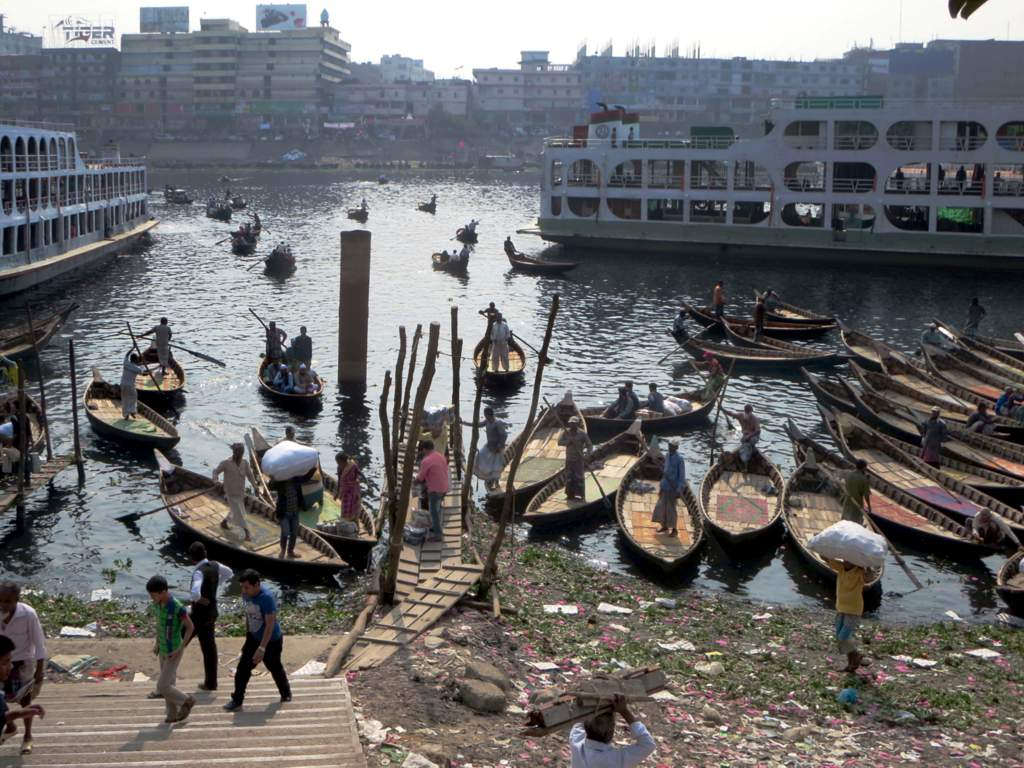“Going forward: transport and communication”
June 28 Infrastructure is regarded as a prerequisite for sustainable and balanced economic growth in any economy, writes Naim Ebna Rahman, 20, a Correspondent from Dhaka in Bangladesh, who looks at how Bangladesh is facing that issue.
Infrastructure is regarded as a prerequisite for sustainable and balanced economic growth in any economy, writes Naim Ebna Rahman, 20, a Correspondent from Dhaka in Bangladesh, who looks at how Bangladesh is facing that issue.
Bangladesh is approaching healthy economic growth, estimated at more than seven per cent within the next five years, and the transport and communication sector is one of the essential sectors to attain that desired growth.
Unfortunately, Bangladesh is still lagging behind to ensure an international standard in infrastructure parameters. In the seventh five-year plan, the government has taken some strategic policies and plans to make favourable infrastructure for economic development.
On average, the transport sector value-added grew by 6.2 percent during the sixth five-year plan, which is much lower than projected. However, in terms of service to the formal economy, there has been significant improvement through some visible addition of new infrastructure in Dhaka and Chittagong and other regions as well. Still, the overall performance is lagging behind the demands of the economy.
Broadly speaking, implementation has been extremely slow and behind the original time frame of completion. Inland waterways played a limited role in the previous plan. Lack of resources is the main cause. The quality of sector management and services provided by the operators has also been identified as contributing to inland water transport’s overall decline. Tariffs regulated by the government have also been found insufficient to generate a reasonable profit, and as a result boats are overloaded, the cause for more than half of the accidents on waterways. All these limitations have been mentioned in our seventh five-year plan strategy.
The transport and communication network in Bangladesh consists of roads, railway, and water and air transport, as well as post telecommunication and information technology. Modern transportation and communication infrastructure is a significant benchmark for measuring the overall socio-economic development of a country. In the current context of globalization and market economy, there is a decisive need for developing a progressive and well structured transport and communication system in Bangladesh, which will connect the society with the information superhighway that should be able to make Bangladesh competent in the race of the international transport and communication competition.
The government of Bangladesh has distinguished the transport and communication infrastructure as the key sector for securing socio-economic development. It has, therefore, taken some commendable initiatives to implement appropriate projects on a priority basis. These incorporate establishing an extensive road network in each district to connect villages, unions, upazilas and the district headquarters, and taking appropriate initiatives to construct the Padma bridge and Karnaphuli tunnel, and the Dhaka-Chittagong four-lane expressway. Establishing rail and road connection with neighbouring countries under the Asian Rail and Highways schemes has been appreciated by all for regional connectivity. Improving river routes and the river transportation system hopefully will facilitate safe and cost effective transportation of cargo and passengers, and construction of deep sea ports and modernisation of Chittagong and Mongla ports will ease the country’s imports and exports. As well, the government has set a new plan to extend telecommunication facilities to rural areas by bringing all upazilla under an internet communication system in the next five years.
With the radical change in the perception of development, the role of communication has expanded tremendously over the years. Development has to be woven around people, not people around the economic development. It has to be the development of the people, by the people, for the people with the role of communication in the economic development of Bangladesh. Furthermore, some pragmatic strategies can be followed for better performance such as:
- Political willingness to implement these strategies
- Expansion and modernisation priority for transport and communication
- Corruption should be handled strictly
- All development projects should be completed on time
- Projects should be sustainable and long lasting for true development
- Quality and safety should be maintained during construction of infrastructure
Transport and communication infrastructure play pivotal roles in economic development, as all other economic sectors largely depend on them. Bangladesh’s government should give emphasis on this sector and reform it fully. Transportation and communication sector should be digitalised for better performance in the long run, and Bangladesh is very ambitious about achieving its vision 2021 by full length digitalisation of transport and communication development. Implementation is the foremost challenging task for the government to show its true and honest intentions and commitment.
Reach me on Twitter: https://twitter.com/naimdu12
photo credit: Rowboat Ferries via photopin (license)
………………………………………………………………………………………………………………………………………………………………
About me: I am a youth leader and development practitioner who is studying Development Studies at the University of Dhaka, having completed my BBLT-13 graduation programme from BYLC.
I regularly write in different national and international media. My passion is writing and volunteerism. I aspire to be a change maker who will influence the future.
………………………………………………………………………………………………………………………………………………………………
Opinions expressed in this article are those of the author and do not necessarily represent the views of the Commonwealth Youth Programme. Articles are published in a spirit of dialogue, respect and understanding. If you disagree, why not submit a response?
To learn more about becoming a Commonwealth Correspondent please visit: http://www.yourcommonwealth.org/submit-articles/
…………………………………………………………………………………………………………………………………………………




